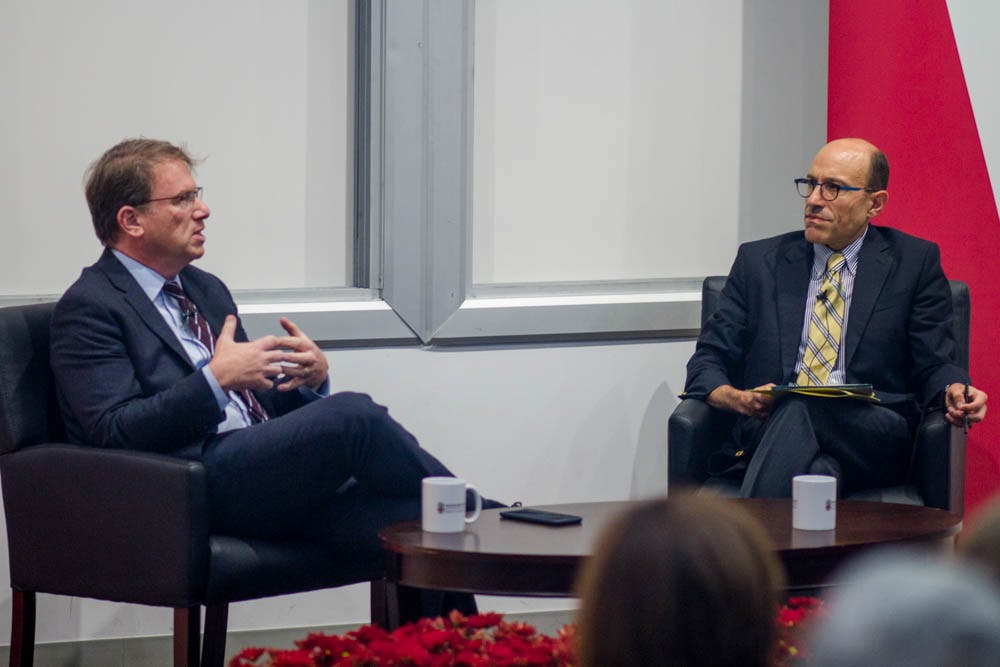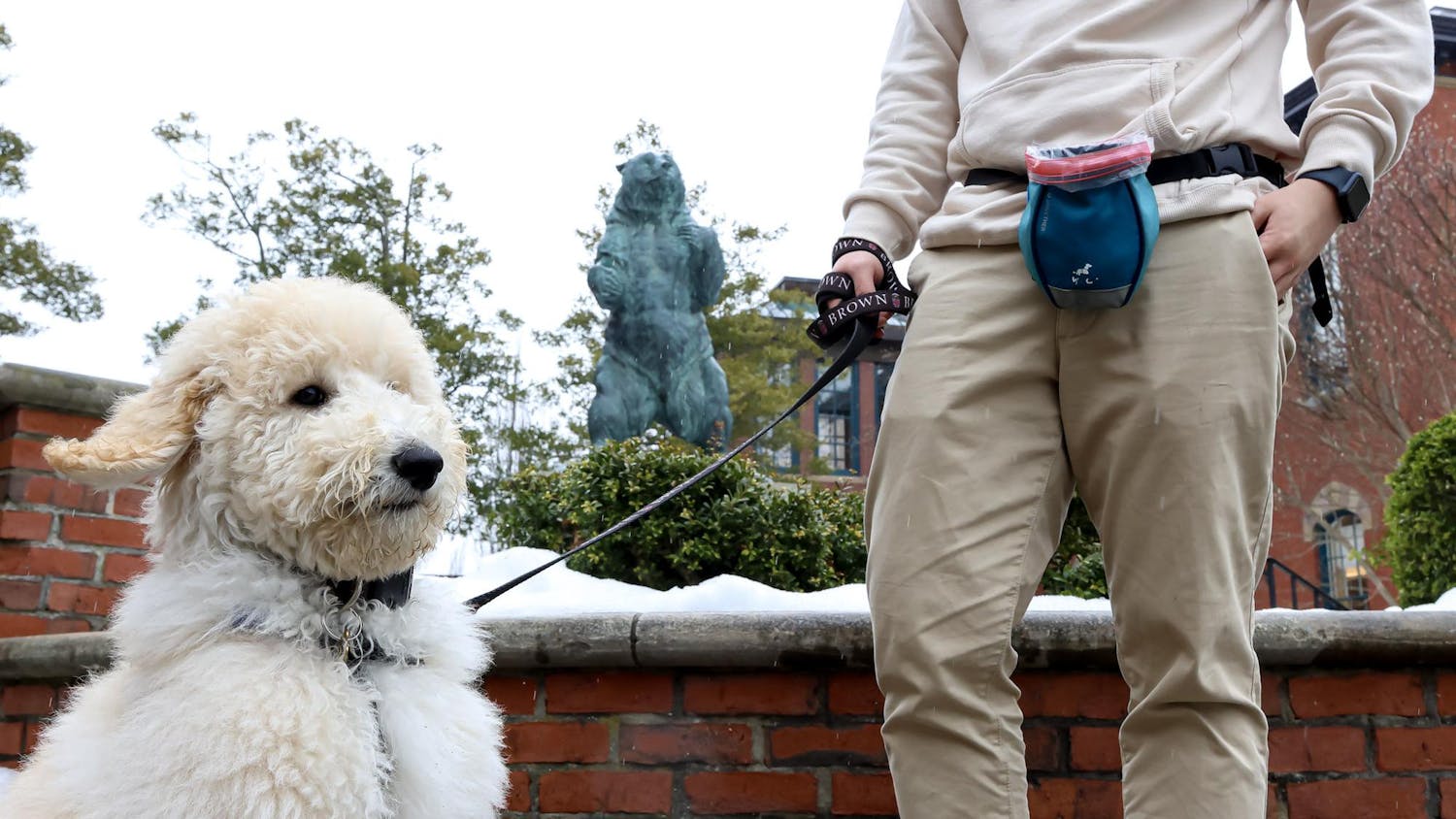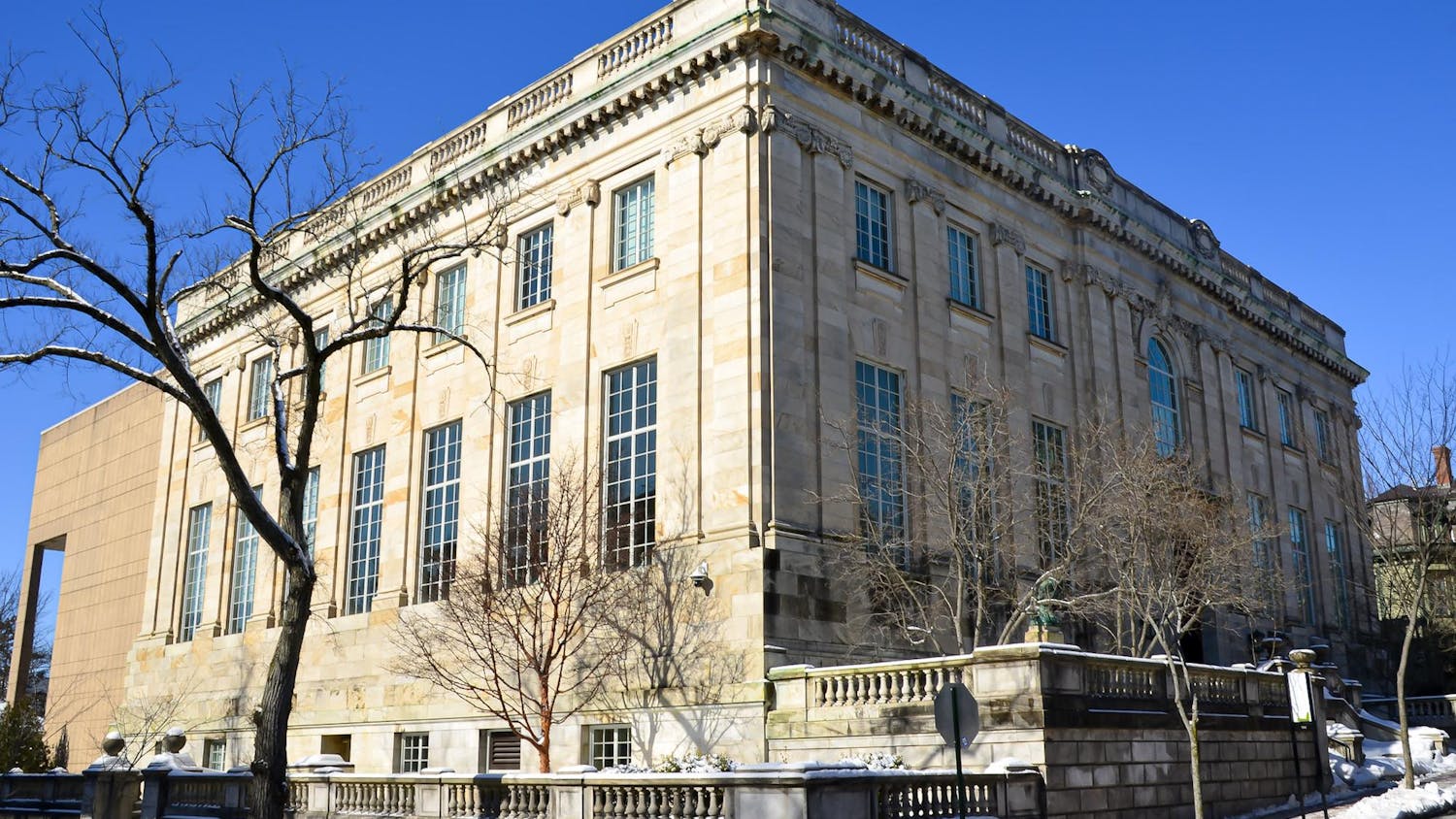Jeffrey Goldberg, editor-in-chief of The Atlantic, came to the University to talk about the state of the press in the era of Trump. Goldberg sat down with The Herald to discuss his journalism career and advice he has for budding journalists.
Herald: You wrote a popular piece called “The Obama Doctrine” about Obama’s foreign policy, which you based on a number of extensive conversations you had with him throughout his presidency. How did you foster such a close relationship with President Obama compared to other journalists?
Jeffrey Goldberg: I like talking to people who have real, articulated, philosophical underpinnings to the way they think. That’s a non-partisan statement; Steve Bannon can do the same thing. President Obama was an unusually thoughtful person. Now that was sometimes considered a positive and sometimes considered a negative. In my experience, he’s bored by the quotidian discussion of political ups and downs. He’s trying to understand the role of history in policy making. As a magazine feature writer, that’s the way I think as well. Over time, we both came to realize that there were more issues and conversations to be had than just the typical “controversy du jour.” I met him when he was a senator and had a long standing relationship with him. He was unusually willing as president to talk about the way that he thinks about things. He had the rare ability to observe his presidency while it was happening.
You have written about topics you had personal experience with, most notably in your book, “Prisoners: A Story of Friendship and Terror,” which focuses on your relationship with a Palestinian prisoner while you were a guard. How would you suggest journalists write about what they don’t know?
The topics that you do know very well are probably where you should start. But the problem with doing that too early is that you haven’t let the experience stay with you for a while. Being transparent with your readers about what you feel, what you thought and what you think is a good thing.
I’m also a big fan of throwing people into the deep end of the pool. The skill of a journalist is to land in a place and see how quickly it takes you to figure out what’s going on. You’ll be successful in journalism if you’re a quick study. Journalism is never going to be perfect. It’s too complicated to be perfect.
Have you had any experiences where you were “thrown into the deep end?”
All the time. Sometimes it’s almost comical. As a young Washington Post reporter, they said to me, “There’s a prison riot. Go cover the prison riot.” I didn’t even know where the prison was, and an hour later, I’m watching buildings burn and trying the hardest I can to not sound like an idiot.
I had this experience in Azerbaijan once when I landed in the country, and five hours later, I was interviewing the president of the country just because of a series of strange circumstances. I treated the fact that I didn’t really know anything not as something that scared me but as a challenge. You can always be more prepared about something.
You’ve written stories in several conflict zones; have you ever feared for your safety?
Yeah, sure. I’ve been kidnapped, beaten, shot at. Now I just go to meetings. But the truth is I’d rather be beaten, shot at and kidnapped than go to meetings. I mean some meetings are okay, but most I could do without.
There were a lot of stupid things that I did when I was younger. I wrote a piece about Daniel Pearl, the Wall Street Journal reporter who was beheaded in Pakistan. The piece was about how, before he was murdered, it was just more fun. As an American foreign correspondent, you felt that you were encased in a kind of protective bubble, no matter who you were dealing with. When Danny happened, it all changed.
You wrote multiple pieces about your time with Fidel Castro, who originally reached out to you to discuss your piece on the Iranian nuclear program.
He had very definitive thoughts on nuclear proliferation.
It might be my favorite moment of all time. It’s a great punch line. There’s a famous letter he wrote during the middle of the Cuban missile crisis to Khrushchev demanding that he launch a preemptive nuclear attack on the United States, so I said to him, “This letter, how do you feel about it today?” And he said “Ah, it was a bit much.” It was a great moment to talk to a figure from history about what may be the most pivotal week in the history of civilization. Those are the moments that you live for (as a journalist), because how else am I going to meet Fidel Castro? While he was alive, obviously he was one of the top five people you would want to go see for any journalist.
What advice would you give to a student aspiring toward a career in journalism?
Don’t.
Well, let me add to that. I discourage people from looking into journalism. Mine was a more stable era in journalism. It has to be your obsession. You’re never going to make a ton of money. It’s a very unstable business right now. So I discourage people. But if they keep coming back, two or three or four times, then we can talk.
This interview was edited for length and clarity.





